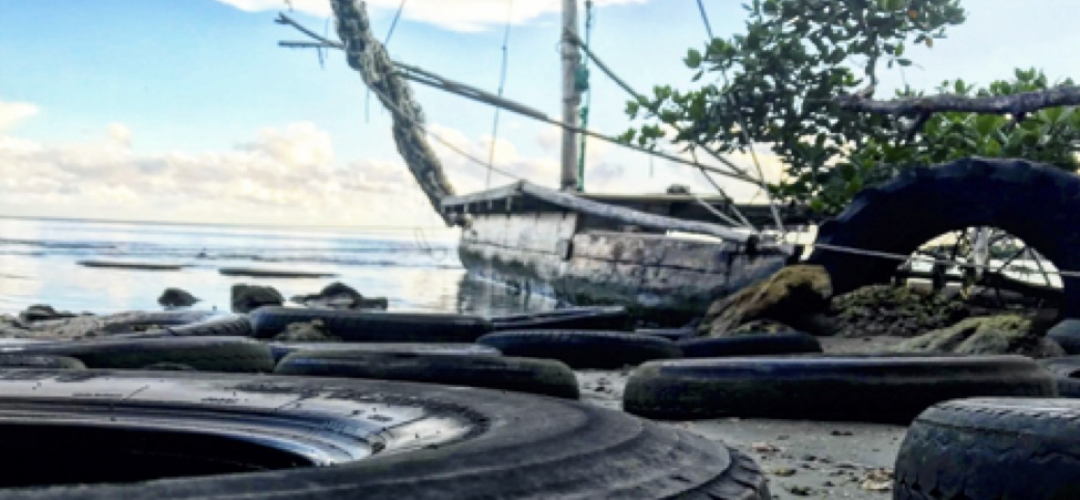Korova Struggles Continue

By Shivika Mala
After attending several climate change summits and conferences across the globe, members of Korova Settlement are still struggling to adapt to the direct impact of sea level rise and improper access to electricity.
Korova, a small squatter settlement with not more than seven (7) houses, is located behind the Fiji School of Maritime along the Queen Elizabeth Drive, Suva.
This is the same village where the movie makers of Disney film Moana had set foot to learn the tradition and culture of Camakau (traditional canoe which can be seen in the movie) building, as told by the village spokesperson Jiujiua Bera.
Despite getting into the lime light, the members of the settlement are struggling to get electricity by the relevant authority, and are slowly becoming victims of sea level rise.
Sea level rise
Tikoidelaimakotu Fuluna, a member of Korova Settlement who spoke during the 21st Conference of Parties in Paris said that his people of Korova are already facing the effects of climate change.
In a report by UNESCO, Fuluna states “the effects of climate change are already being felt in weather changes, warming seas, bleaching coral. The old men no longer make fast, sustainable ships and teach their children to sail and know the ocean in the way my elders have taught me.”
“We all know that a climate changed future means we face challenges greater than any generation before. For those of us whose communities still live on the ocean, we also know we are the ‘canary in the cage’.”
Having grown up in Korova, a community with heritage of canoe building and sailing from the island of Oqea in Lau, he studied mechanical engineering and is now a service coordinator working with heavy machinery.

Sakiusa Veikauyaki (community elder)
The oldest member of Korova Settlement, 72 year old Sakuisa Veikauyaki said he started witnessing the effect of climate change a few years ago.
“We can see that sea level is continuing to rise because in the past during high tide, we did not experience water to rise up to our breadfruit trees. But in the last five years, we can see that during high tides, water comes all the way to the mid height of our breadfruit trees.”
He added that such incidents occur only once a year but it is still a major concern for them.
The houses in Korova are mostly built on stilts.
The villagers have placed used tyres along the seashore to prevent strong waves from entering the settlement.
Bera said despite the rising sea levels, living beside the sea enables them to preserve their traditional skill of canoe building and it gives them the ability to pass this tradition down to the younger generation.
“The ocean is like our mother. You must never be scared of it. She gives us food and gives us comfort. She keeps all of us connected like a family.”
Bera is currently in Bonn, Germany as a representative of Korova Settlement and as a climate change activist.
Electricity
The Turaqa Ni Koro (chief) of Korova, Waqaciri Dokosabau said that the settlement has been living without electricity for over two

Waqaciri Dokosabau (Turaqa ni koro)
decades.
He said that the settlement is currently using solar panels to generate electricity for their daily use.
“We have not had electricity for so many years. We tried to approach Fiji Electricity Authority (FEA) on our own but due to some complications there was no response.”
“Currently the Peoples Community Network (PCN) are working with us trying to get FEA generate electricity for us.”
“We were told it would be difficult to get electricity to our village because it needs to come here by the sea (underground) and also the FEA had to liaise with Fiji School of Maritime to get electricity.”
20 year old Irene Waqavesi said that electricity is essential for the children of the settlement because they need to study at night as well.
“We can only use solar powered electricity only when it is sunny. We have small panels therefore the electricity generated by it has short term use,” she said.
Several attempts were made to contact the Fiji Electricity Authority and Peoples Community Network, however, they did not respond.










